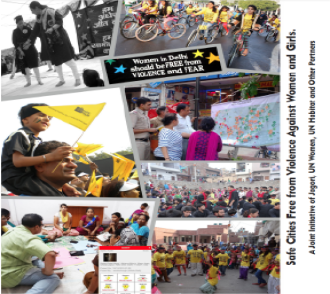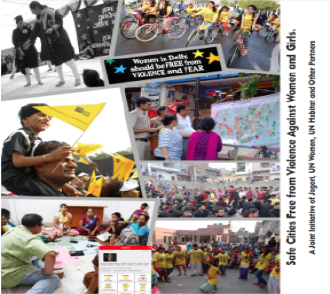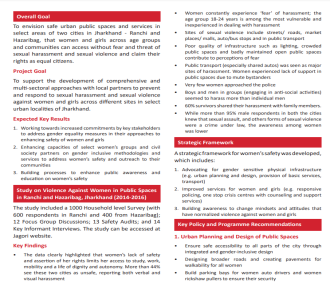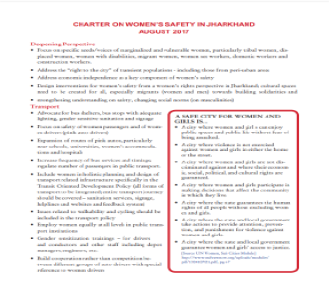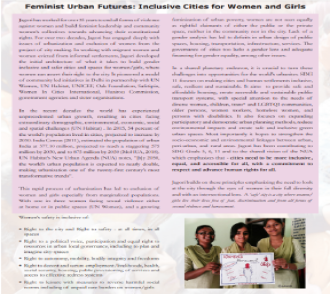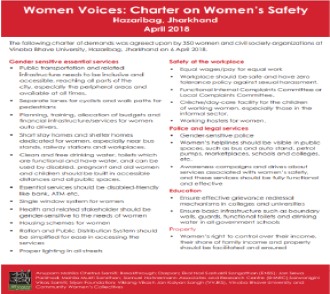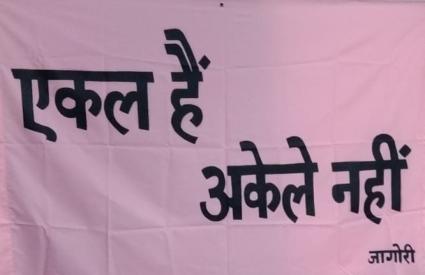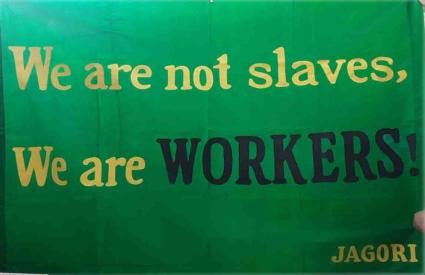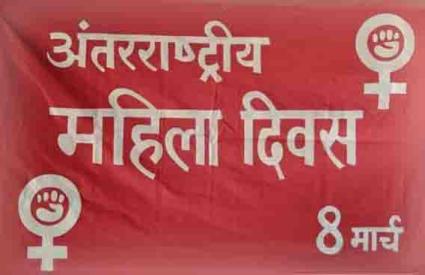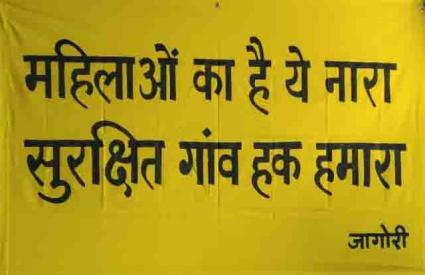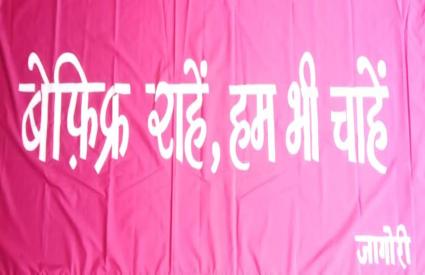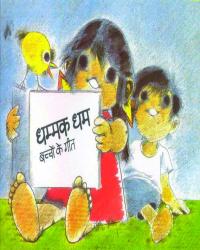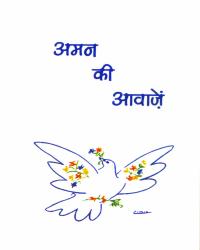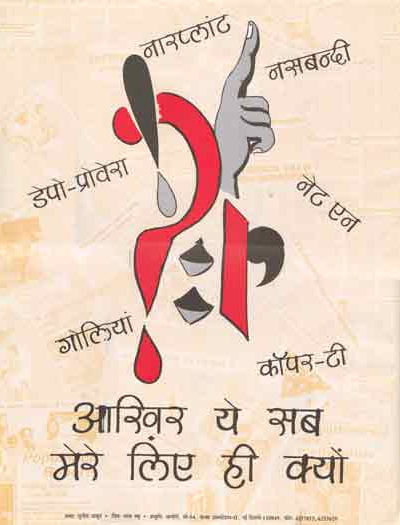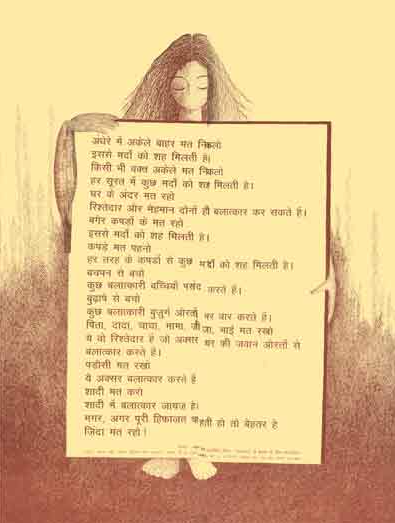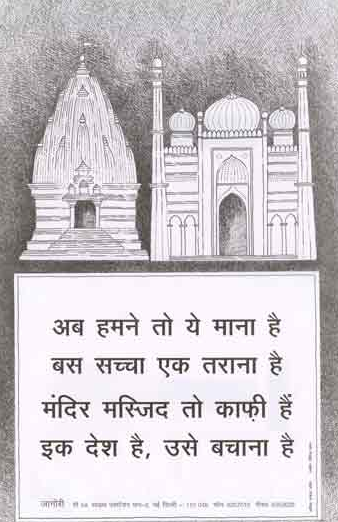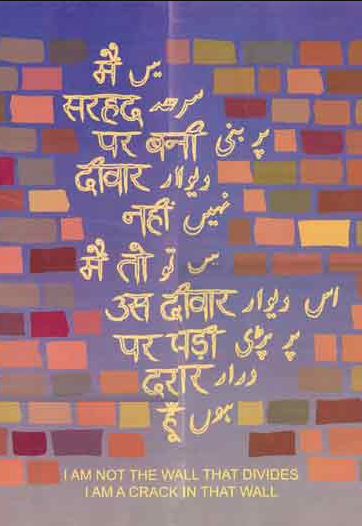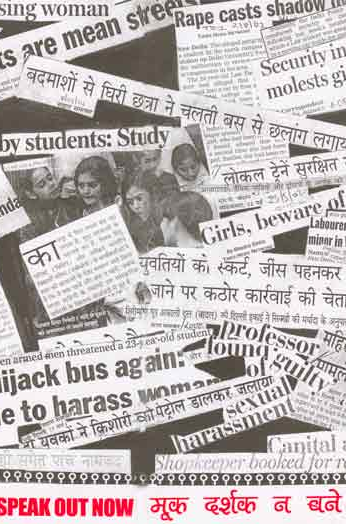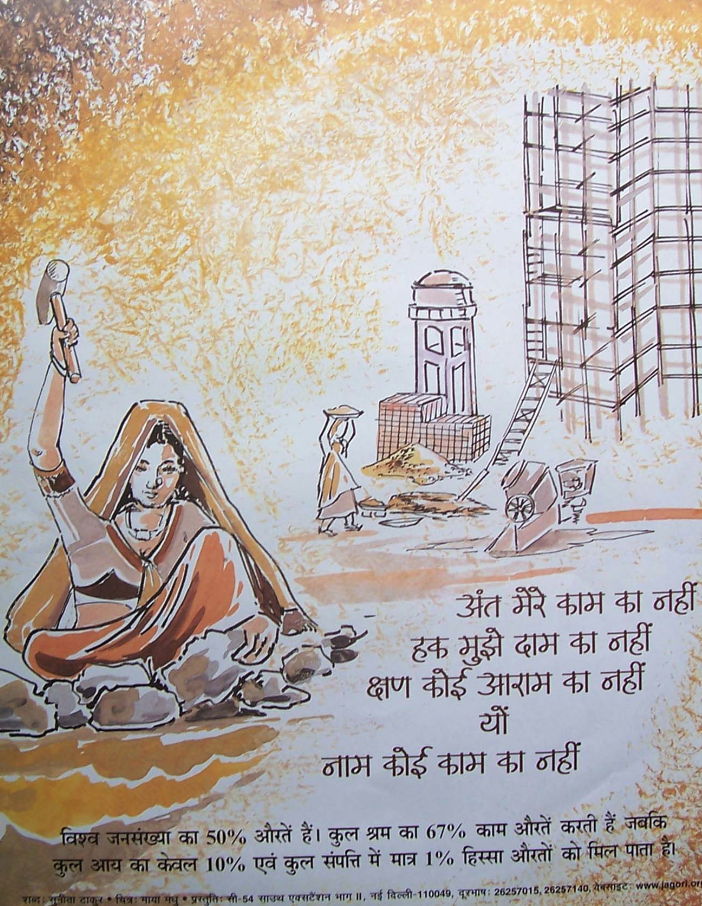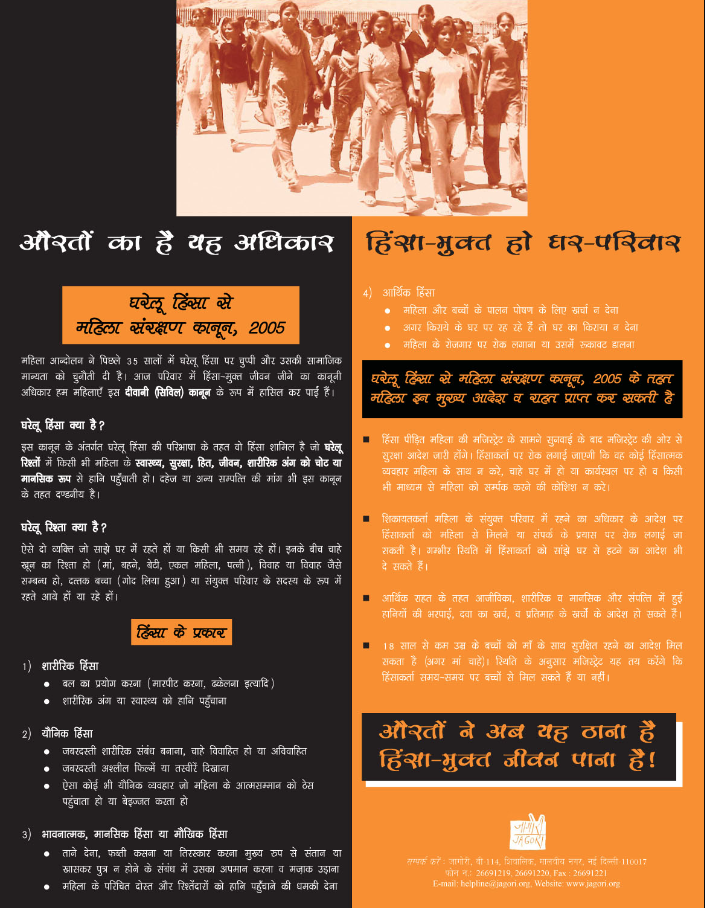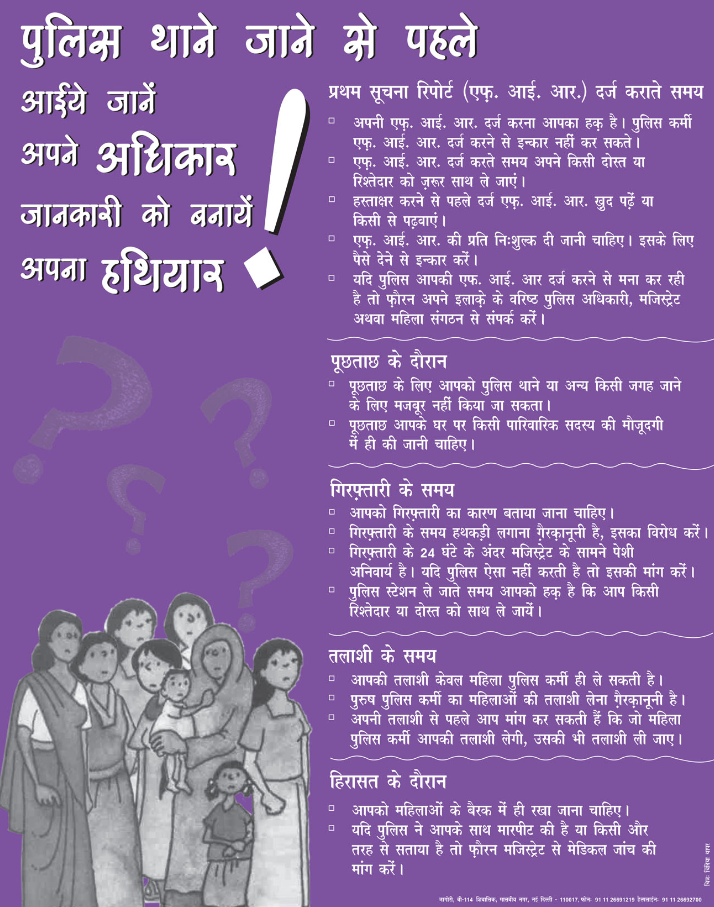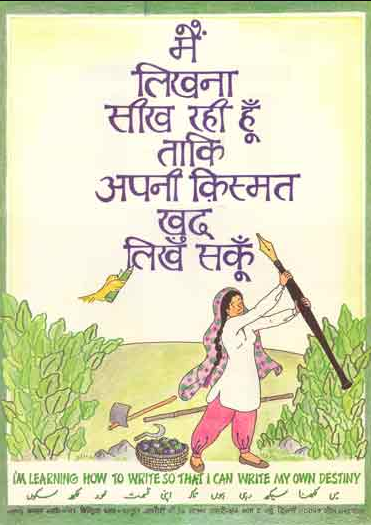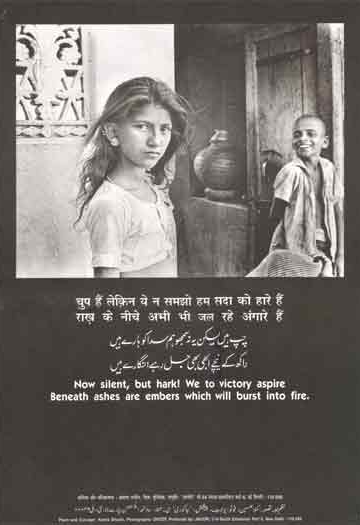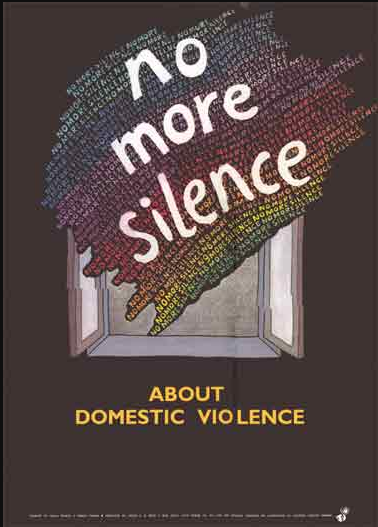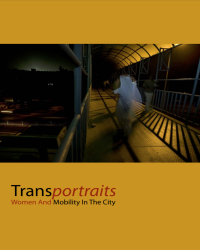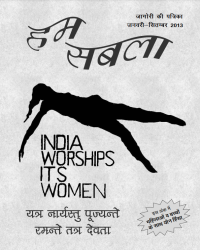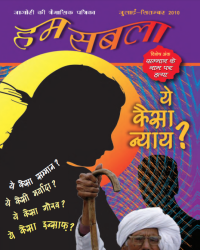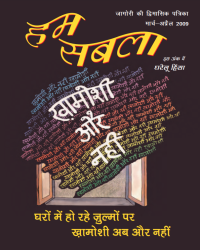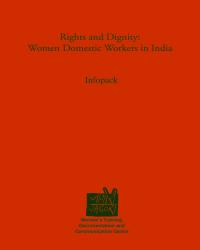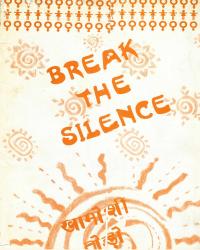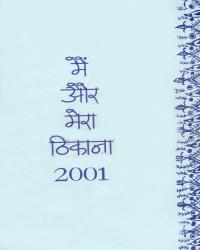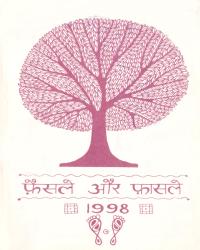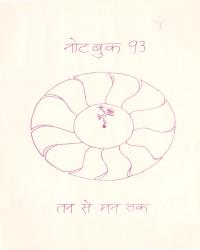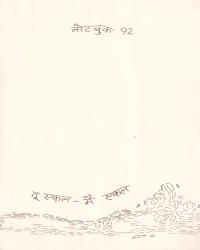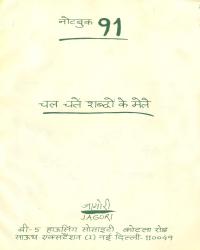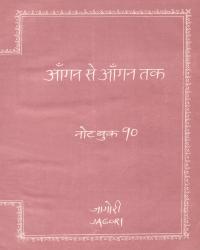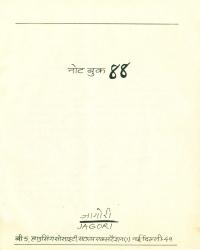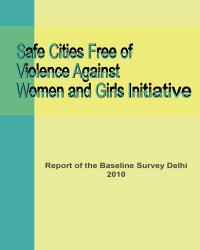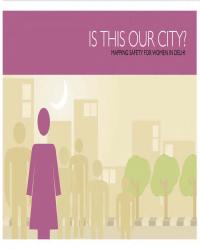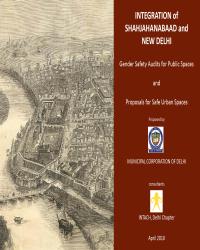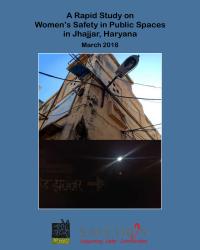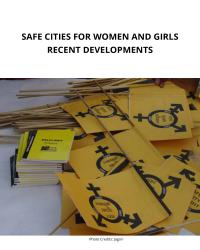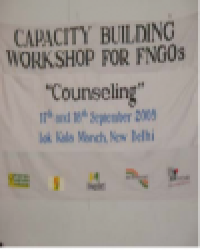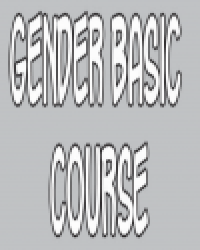Resources
ARTICLES BY JAGORI
|
27-08-2019 | | | By 27-08-2019 | | | Paper presented by Madhu Bala at Regional Workshop on Documenting Women’s Experiences in the Movement: Issues, Experiences and Struggles Organized by IAWS in September 2016 |
|
25-06-2019 | Neetu Routela, Sarita Baloni, Shruti Batra | IDR | By 25-06-2019 | Neetu Routela, Sarita Baloni, Shruti Batra | IDR | From overcoming your fears to being open to changing your approach, while staying true to your vision – here are some lessons from working in communities. |
|
25-06-2019 | Neetu Routela | फेमिनिज़्म इन इंडिया | By 25-06-2019 | Neetu Routela | फेमिनिज़्म इन इंडिया | कार्यस्थल पर लैंगिक हिंसा के संदर्भ में जब भी कोई चर्चा या लेख देखती हूँ, तो कई बातें खुद से पूछती और जवाब देती रहती हूँ। पर दिमाग में जो लगातार कौंधता है, वो यह है कि आखिर करता कौन है लैंगिक हिंसा? |
|
01-02-2017 | Geetha Nambisan | From the 21st to 31st of January 2017, Jagori in partnership with the Delhi Metro Rail Corporation (DMRC) ran a campaign – using public messaging across 10 metro stations urging each and every citizen to take action to end violence. These banners across the metro stations carried simple messages that encouraged bystanders to take action to end violence.
|
|
10-08-2016 | By Anuradha Shukla | Women’s Feature Service According to the National Crime Records Bureau (NCRB), on an average, 8,800 dowry deaths and domestic violence cases are booked every year. Section 498A of the IPC has given protection and relief to many harassed women and should continue in its original form. |
|
2015 मेरा नाम वीरेंदर कुमार है, मेरे दोस्त साथी प्यार से मुझे वीरू कहकर बुलाते हैं। मैं मदनपुर खादर जे.जे. कालोनी क्षेत्र में रहता हूं। मैं जागोरी में इंटर्नशिप के तहत जुड़ा हुआ हूं। जागोरी से मेरा साथ 2008 से है, ये बात उस समय की है जब मेरी उम्र 14 साल की थी। उस समय से लेकरअब तक मुझे जागोरी से काफ़ी कुछ सीखने व समझने को मिला है। |
|
2015 When I see my daughter, Mansi play in front of the house, I am swept by this sudden rush of feelings and emotions. It makes me ponder over her childhood and I know these days will be remembered by her as her most peaceful days for the rest of her life. But the thing that makes me wonder most is how different my childhood days were. |
|
जागोरी महिला आंदोलन का एक हिस्सा होने के नाते जहाँ एक ओर महिलाओं की स्तिथि एवं दर्जे का आंकलन करते हुए आगे बढ़ी , उसी तरह किशोरियों की ज़िन्दगी को भी करीब से समझा और कुछ खास बिंदुओं पर किशोरियों के साथ अपने काम को केंद्रित किया |
|
2015 मेरा नाम मीरा है, मैं जे.जे. कॉलोनी, मदनपुर खादर, सरिता विहार में रहती हूं। मैं अभी ओपन स्कूल से 12वीं कक्षा मेंपढ़ रही हूं। मैं जागोरी में अपने साथ ससुराल वालों द्वारा घरेलू हिंसा व दहेज उत्पीड़न मामले में सहयोग के लिए जुड़ी थी। |
|
01-09-2015 | Anuradha Shukla | @ Women's Feature Service Domestic workers in Jaipur, Rajasthan, have proved that even the most disadvantaged group can change their odds if they stand by each other. |
|
2015 मेरा नाम रीतु है, मैं मदनपुर खादर जे.जे. कॉलोनी में अपने परिवारके साथ रहती हूं। मैं इस समय बी.ए. में पढ़रही हूं। जागोरी केसाथ मैं वर्ष 2007-8 में जुड़ी थी। तब मेरी उम्र 11 साल की थी। मैं तब जागोरी के किशोरी समूह (शक्ति समूह) से जुड़ी हुई थी। |
|
2015 मेरा नाम सम्पा है, मैं जे.जे. कॉलोनी, बवाना में रहती हूं। मैं जागोरी में फ़ैलोशिप के माध्यम से जुड़ी थी। तब मुझे पूरी तरह नहीं पता था कि जागोरी संस्था क्या करती है, पर मेरी छोटी बहन जागोरी के साथी समूह में जुड़ी हुई थी। |
|
14-12-2013 | Anuradha Dutt | Women's Feature Service Women domestic workers make up the support system of millions of middle class home but there is no guarantee that they themselves will not be left high and dry. |
|
14-12-2013 | Anuradha Dutt | Women's Feature Service A novel mobile application called “Safetipin”, geared to making Delhi – and subsequently other cities in India – safer for women has been launched recently in the capital. |
|
18-09-2012 | Kalpana Viswanath Authors and Co-authors of Chapters: Caroline Andrew, Suneeta Dhar, Sara Ortiz Escalante, Barbara Holtmann,Prabha Khosla, Fran Klodawsky, Anita Lacey, Crystal Legacy, Melanie Lembrick, Rebecca Miller, Dorry Reev
|
|
25-06-2009 | | Jagori Safe Delhi for Women, a joint initiative of Women & Child Development (DWCD), Delhi Government, Jagori, UNIFEM, engaged with the Instructors of Delhi Transport Corporation (DTC) in a three day training at the DTC centre, Nand Nagri Depot. The training brought together 50 instructors to enhance their perspective and knowledge to reflect on why violence and sexual harassment is all-pervasve and the need to find ways to eliminate it. |
Booklets
BANNERS
Banners have formed a central part of all our protest and campaigning activities...
SONG BOOKS & CASSETTES
Songs are a part of the everyday lives of women...
POSTERS
EXHIBITIONS
|
|
CASE STUDIES
|
In this booklet, the cases covered represent a diversity of issues pertaining to the safety and security of women and girls of all ages. The goal is to offer a variety of examples of survivors and the mechanisms and mediums they utilized in order to overcome compound forms of violence and abuse. Each individual case highlights a particular subset of crimes against women: rape; dowry harassment; child marriage; and stalking. An overwhelming majority of survivors of violence and abuse are unaware of their basic rights and the kinds of protection available through legal intervention. |
|
This document has been conceptualized with the objective to a) share experiences of women facing violence, how they challenged existing patriarchal systems and evolved as ‘survivors’ and b) to provide information about rights and laws available to women in a trying circumstances. The five cases we highlight in this document reiterate that violence is inextricably woven into the everyday lives of these women. The agents of violence could well be located within families or outside in unfamiliar domains. |
|
The case studies covered in this study reiterate that the executors of violence could well be located within families or outside in an unfamiliar domain. Following different trajectories in time, space and details the cases are bound by commonalities that include: patriarchy, societal pressures, gender exploitation, insensitive administrations and the indispensability of women’s organizations, communities and youth. |
DEKHI SUNI
Handbooks
|
Building Safe and Inclusive Cities for Women – A practical guide
This is a broad introduction to the process of creating safe cities for women and girls. It introduces the key concepts of safe cities and offers practical tools for how to begin building a safer, more inclusive city. The information in this guide combines knowledge from scholarly research with insights from on-the-ground work around the world, with particular focus on JAGORI’s work in India. In the six years of work on this issue, we have learnt that it is possible to make cities safer for women and girls. |
|
A Handbook on Women’s Safety Audits in Low-income Urban Neighbourhoods: A Focus on Essential Services
This handbook is a comprehensive guide prepared by JAGORI, on conducting WSA’s (Women’s Safety Audits) in low income urban neighbourhoods, with a special focus on essential services. The Action Research Project on Women’s Rights and Access to Water and Sanitation in Asian Cities (2009-11) implemented in two resettlement colonies of Delhi is also the result of a partnership between JAGORI and WICI (Women in Cities International), a Canadian based organization working in Canada and internationally. In Delhi, the project is being implemented in partnership with Action India. |
Hum Sabla
Hum Sabla is a Hindi journal celebrating women’s lives...
|
|
|
|
|
|
|
|
|
|
|
|
|
|
|
|
|
|
|
|
|
|
Info Packs
Notebooks & Diaries
The Jagori notebooks, or diaries as they are sometimes called...
Research report
Jagori undertakes action-research that serve as the basis...
Statements
|
In December 2018, 38 women's organisations and 35 individuals sent a joint letter to the National Commission for Women (NCW) , urging for state-wise, sector-wise studies as well as special consultations to assess compliance of the Law and challenges therein, before seeking any amendments to the Law, as agreed at the national consultation (convened by NCW on 17th November 2018). |
|
Recent court verdicts have dealt a blow to hard won advances, both in the law and in public discourse - around the principle of "affirmative consent", the idea that "No means No" and the prohibition of referencing the victim’s sexual history or character in adjudication of cases of sexual assault. The statement is endorsed by 48 organisations and 176 individuals. |
TRAINING RESOURCES
|
FEMINIST LEADERSHIP DEVELOPMENT COURSE (FLDC, 2016-18)
|
|
Feminist Counseling Training Report April 2018
A feminist training was conducted at the Christian Retreat Centre, Dehradun with 22 participants from various NGOs, on 26-29 April 2018. |
|
Training with Gender Resource Centres
Three trainings were conducted in 2009 with Gender Resource Centres in New Delhi with program coordinators, counsellors, and social activists. |
|
Gender Development Courses
Jagori conducts an annual National Gender Development Course. Formerly known as the Gender Basic Course (GBC), this course is organized for grassroot level and community activists. With the objective to clarify different concepts and understand the interrelation with prime social events today, it also equips participants with a perspective to monitor and evaluate themselves and everything around them. The GBC has always been the platform to form and strengthen networks and play an active role with the women’s movement. |
|
National Workshop on Safer Cities for Women: Perspectives, Methodology and Tools: A Report
A three day workshop was organised by Jagori (August 19th- 21st,2010), the aim of which was to share the tools developed and tested with select women’s movement partners in the country with the hope to catalyze new initiatives and strengthen existing ones. This platform was organized in support of UN Women (UNIFEM), UNTF to end violence against women, UN Habitat, EED and ICCO. |
|
Kesla leadership camp
As part of building capabilities of the women leaders’ working under PRADAN’s operational areas women’s leadership camps were organized in in four States: Jharkhand, Madhya Pradesh, Orissa and West Bengal. The aim of these camps is to bring together the grassroots women leaders to one platform to learn, exchange ideas and experiences and enhance their knowledge and capacities to take forward the vision of enabling marginalized women to have access to their entitlements with gender perspective and advocate for their rights. |






